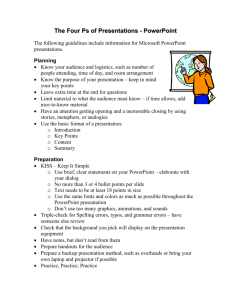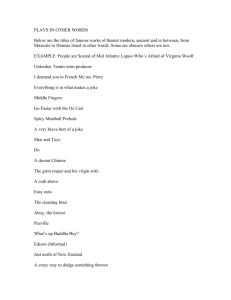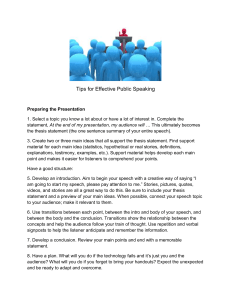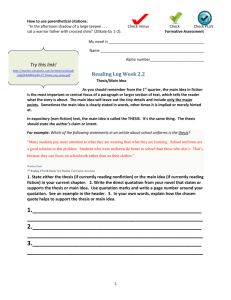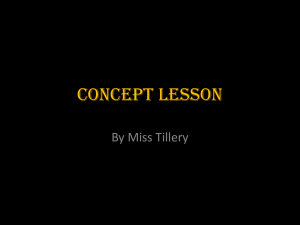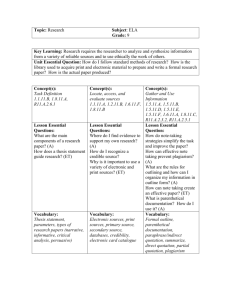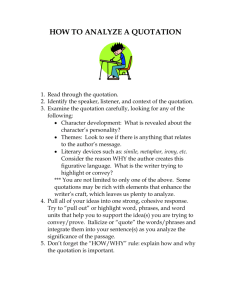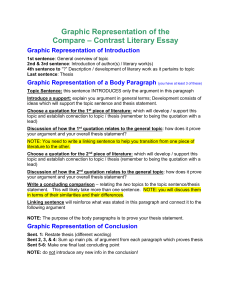“Is There Really Such a Thing as Talent?” – Annie Dillard
advertisement
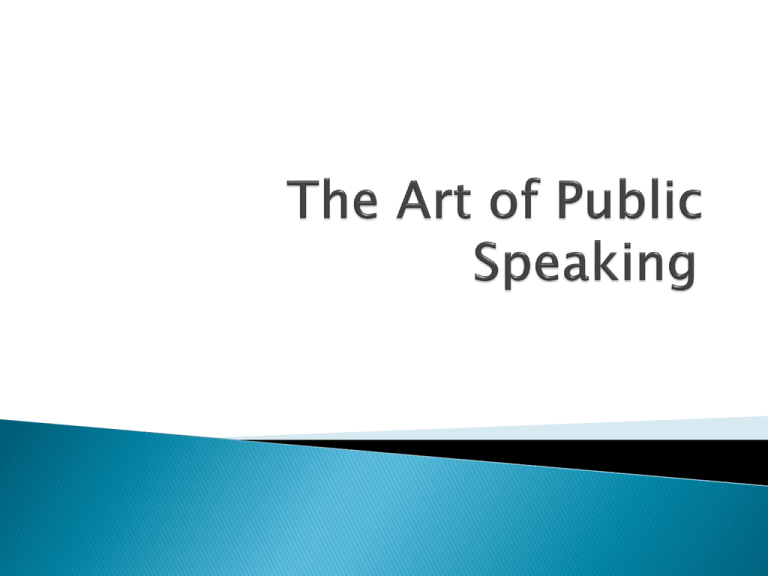
◦ ◦ ◦ ◦ ◦ ◦ ◦ ◦ ◦ Stating the importance of the topic Relating the topic to audience Startling the audience Arousing the curiosity of the audience Beginning with a quotation Telling a brief, related story or scene description Inviting audience participation Beginning with a related joke Questioning the audience Reveal your topic Provide some interesting background information about your topic to intrigue listeners End with a thesis statement previewing the main ideas of your speech Signal the speech is speech is coming to an end (closing transition, re-state thesis) Review the main points Give your own final thoughts about the topic End with a unique, lasting impression: ◦ ◦ ◦ ◦ End with a quotation Make a dramatic statement Refer to the opening ideas Challenge the audience Make sure that your appearance is well presented; NO GUM Speak clearly and adjust your voice so that everyone can hear you. Do not shout for the sake of being loud – Use a conversational tone – vary your rate, pitch, and volume to emphasize and add interest to key points It is common to speak rapidly when nervous, try to take your time Effectively used, a pause in your speech can be used to emphasize an idea or to allow the audience to react to a fact, story, or joke Make eye contact with your audience. This helps to maintain audience interest Do not fidget or make other nervous gestures with your hands or feet. Do not keep your hands in your pockets. Do use hand gestures to enhance your ideas, not to distract from them Keep both feet firmly on the floor. Do not slouch or sway Be yourself and allow your own personality and interest in topic to come across in your speech Remain calm, poised, and confident Rehearse!! Outline your three body “paragraphs” ◦ Every A needs a B, every 1 needs a 2 OR Start writing your introduction and conclusion The outline draft with Intro/Conc. is due Friday

